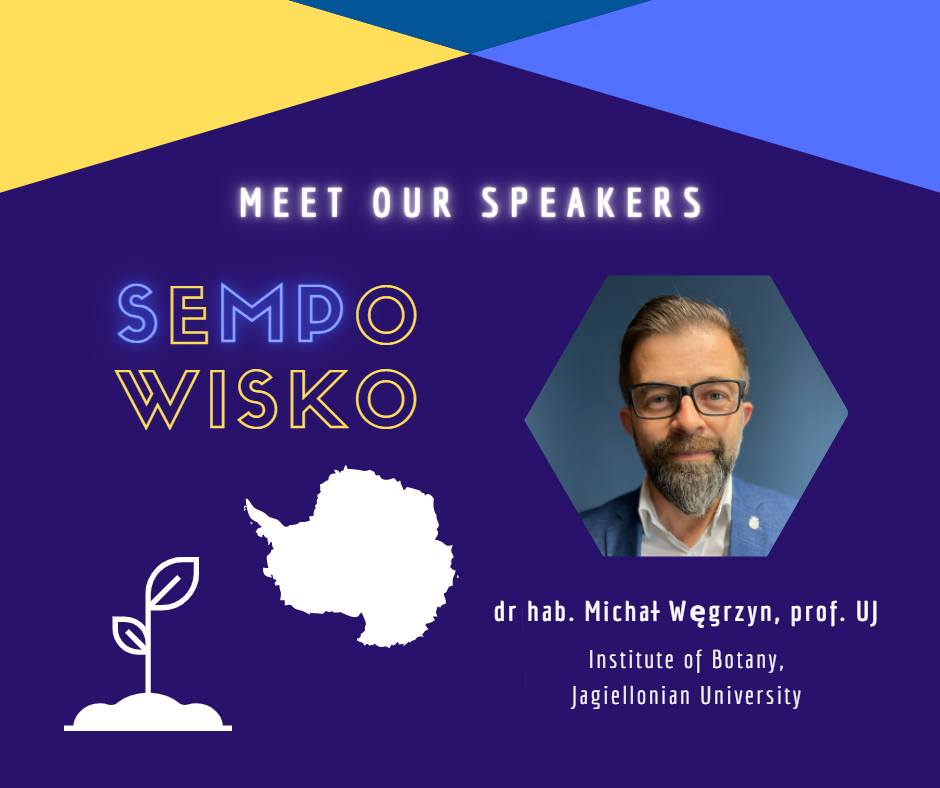We invited great scientists from different fields to give inspiring talks during our event. Please find our lecturers listed above working on subjects ranging from extreme astronomical explosions to botanics.
Prof. Shigehiro Nagataki
During our meeting, we will host a lecture by Prof. Shigehiro Nagataki from the Okinawa Institute of Science and Technology (OIST) titled: “Introduction to Stellar Physics and Supernova Explosions”
Prof. Nagataki got his PhD at Tokyo University, one of the best research institutions in the World. Currently, Professor works at institutes OIST, RIKEN and RIKEN iTHEMS. Some of his research topics are the explosion mechanism of Gamma-ray Bursts, simulations of Supernovae explosions and many many more. Prof. Nagataki is a chief scientist leading a group of researchers called “Astrophysical Big Bang Laboratory”. Researchers from this group gave themselves the ambitious task of unravelling some of the hardest mysteries of the universe.
Wanna find out something more about the work of our lecturer? We invite you to his website: http://nagataki-lab.riken.jp/index_en.html
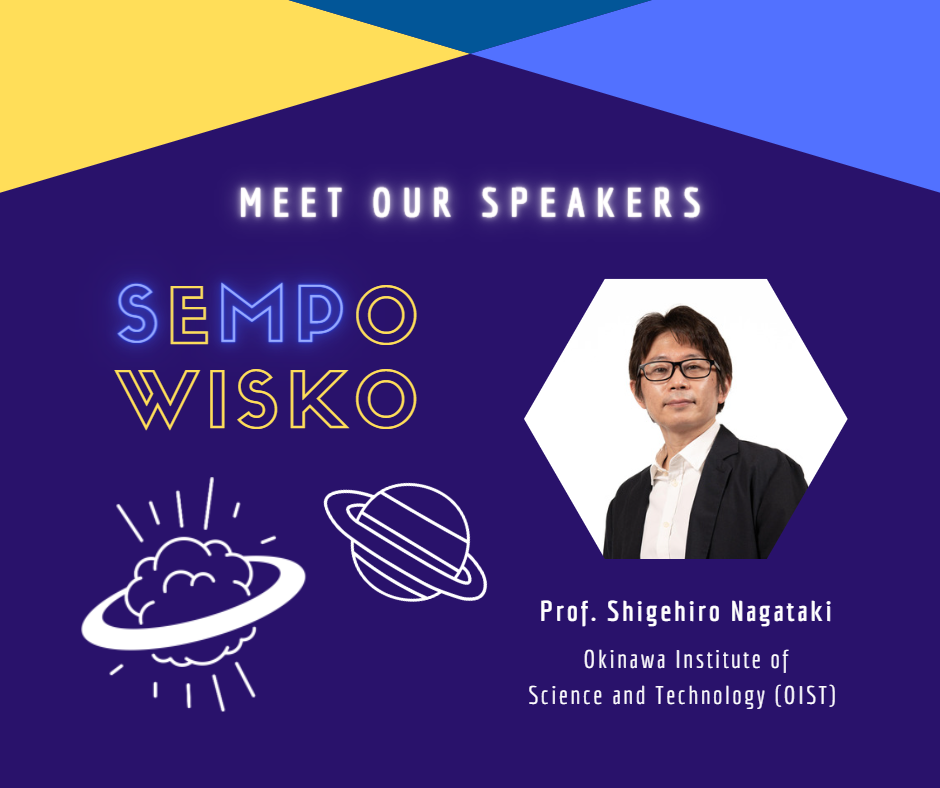
Prof. UJ dr. hab. Daniel Wilczak
Prof. Daniel Wilczak works at the Institute of Computer Science and Computational Mathematics at Jagiellonian University in Kraków. Professor will give a lecture titled: “Algorithmic Differentiation and its Applications”. Researcher got his MSc degree in theoretical mathematics at Jagiellonian University, while the rest of his career was focused on computer science. He worked in Sweden, Norway and at Jagiellonian University in Kraków. Prof. Wilczak is one of the most active scientists in the field of Computational Mathematics in Poland and in the world; he is an author of numerical methods, which enabled further progress on many open questions in mathematics and co-creator of the groundbreaking programming package CAPD. The work of this scientist shed new light even on the astronomical topic: the 3-body problem. You can find more information about the work of our lecturer on his website: https://ww2.ii.uj.edu.pl/~wilczak/index.php.
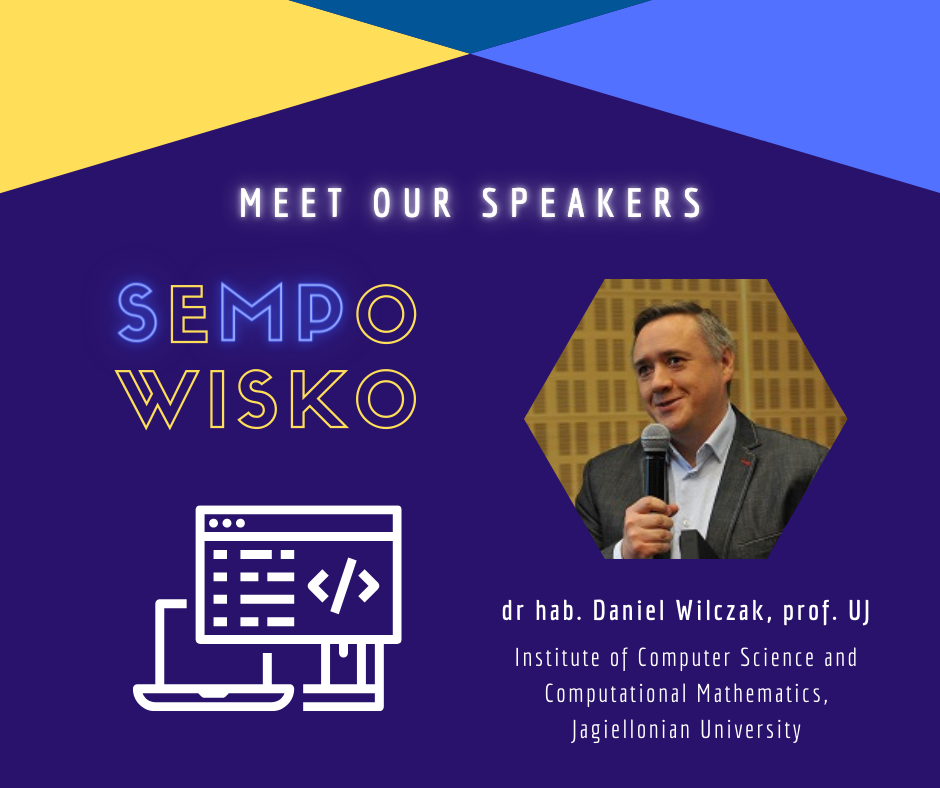
Dr. Aleksandra Kopacz
Dr Aleksandra Kopacz will give a lecture titled “Endothelial Cells – the Maestro of Circulation”
Since her undergraduate studies, which she completed within the framework of Studies in Mathematics and Natural Sciences, dr Kopacz has been associated with the Department of Medical Biotechnology at the Faculty of Biochemistry, Biophysics and Biotechnology, JU, where she recently defended her PhD thesis. In her research, she seeks to understand the mechanisms of ageing and endothelial cell dysfunction underlying the formation of cardiovascular diseases, which are the leading cause of death in developed countries. She is an author of multiple publications and has received prestigious grants for her research project. She has been recognized by fellowships from foreign institutions, including the European Vascular Biology Organization and the European Molecular Biology Organization and has received the L’Oréal-UNESCO For Women in Science Award.
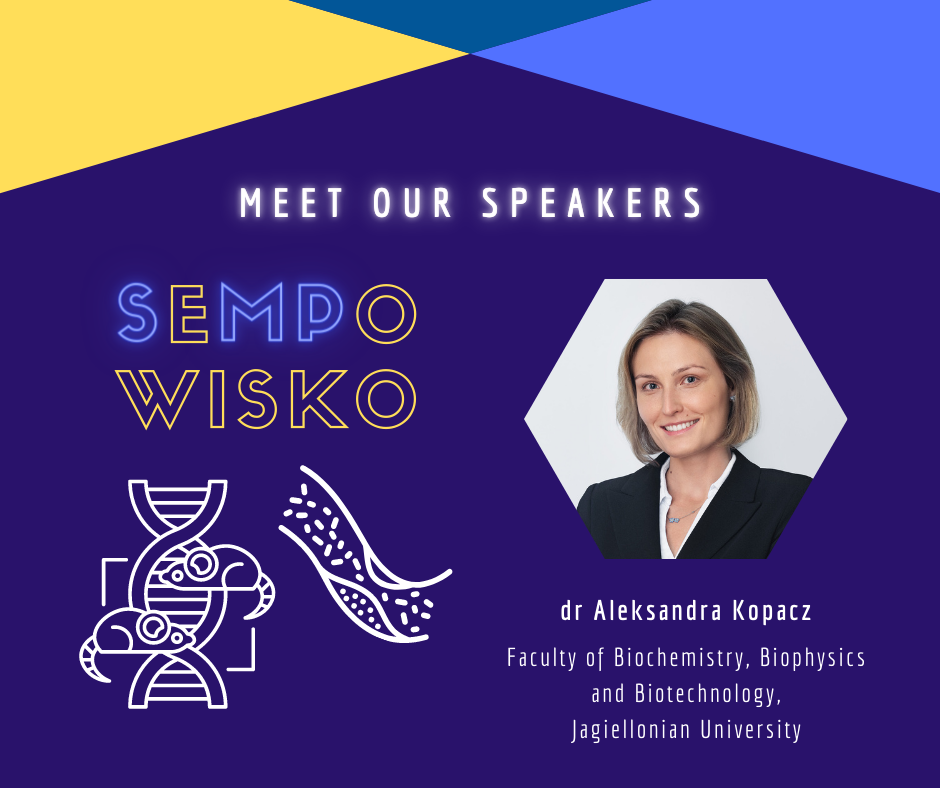
Dr Dominik Wrana
Researcher working in the Department of Solid State Physics of Jagiellonian University will give a talk titled “Let’s take an even closer look: probing individual electrons on Surfaces”![]()
Dr Wrana is a former member of our association. After graduating from Jagiellonian University, he worked in Prague, Czechia and now Dr Wrana returned to Kraków. His work focuses on the scale of single atoms and electrons at different surfaces, mainly oxide crystals, materials applied in photocatalysis and photovoltaics, as well as implementing new ideas in electronics ![]()
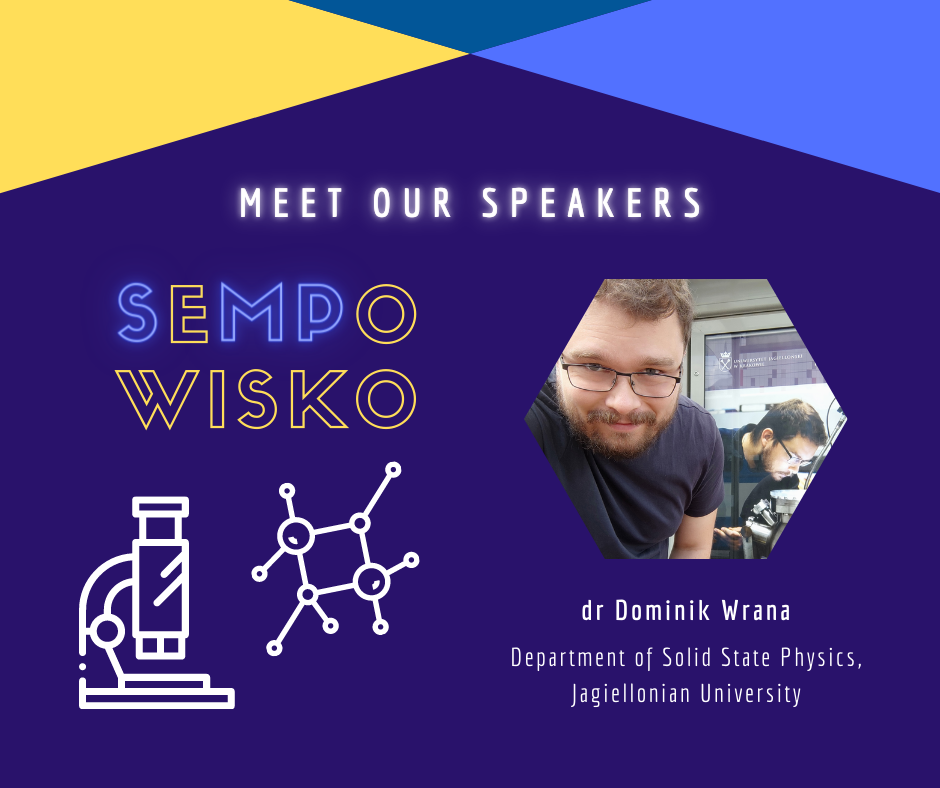
Dr Michal Wegrzyn, Prof. of the Jagiellonian University
Director of the Botanical Garden of the Jagiellonian University will give a lecture entitled “Does being a pioneer pay off? How cryptogams colonize the moraines of Arctic glaciers” ![]()
Prof. Wegrzyn has been affiliated with Jagiellonian University since the beginning of his career, where he conducts research on topics such as polar terrestrial ecosystems, taxonomy and ecology of lichens in mountainous and polar areas, and many others. For research purposes, the professor was a member of 3 polar expeditions to Spitsbergen ![]()
